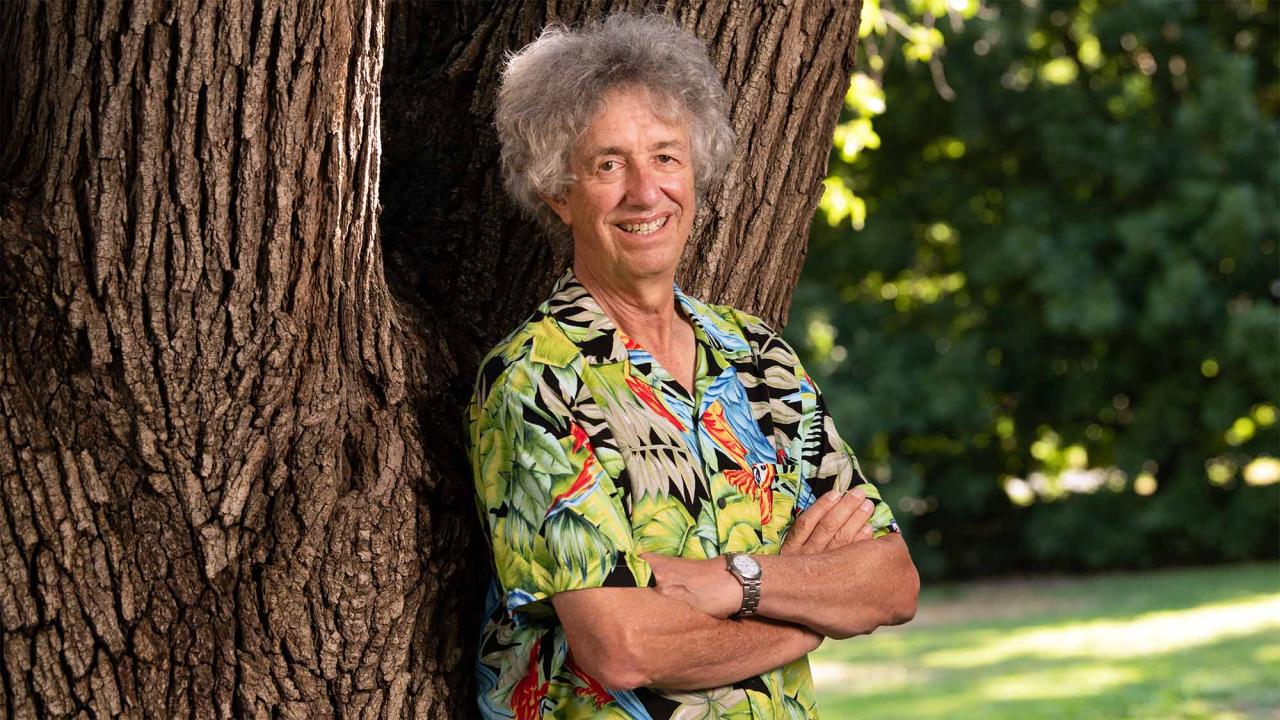To understand Alan Hastings’ theoretical ecology research at UC Davis, sometimes it can be helpful to start by thinking about counting fish.
That’s how the distinguished professor emeritus of environmental science and policy recalled once describing his work to an immigration official in Canada while on his way to a conference.
“Think of a population of fish — if you want to predict the future dynamics of those fish, the first thing you would do is count them,” Hastings recalled saying, explaining that the resulting numbers can then by manipulated through various mathematical formulas. “This is a first start.”
AMONG THE ACADEMIES
UC Davis has more than 50 faculty members who belong to the National Academies of Sciences, Engineering and Medicine, a recognition of their distinguished and continuing achievements in research. The academies are among the most prestigious membership organizations in the world.
Each month, Dateline UC Davis will profile one of these faculty members in honor of their contributions to scientific research and knowledge.
The explanation was so good that the Calgary International Airport official recognized Hastings on a subsequent trip and remembered what he had said.
Hastings describes his work as “using mathematical tools to answer real ecological questions,” like finding the best way to control an invasive grass in the San Francisco Bay, balancing the increased flood risk the grass was causing with the fact that it had become a habitat for an endangered bird.
He is a member of the National Academy of Sciences and a fellow of the American Academy of Arts and Sciences, the American Association for the Advancement of Science, the Ecological Society of America, and the Society for Industrial and Applied Mathematics.
Foundations in math and biology
Hastings traces his interest in the natural world to a summer program in marine biology when he was in high school. He grew up surrounded by water on Long Island, and found himself intrigued by various types of ecosystems. He went on to earn a bachelor’s degree, master’s degree and doctorate at Cornell University, studying applied mathematics, with minors in population ecology and population genetics.
He held roles in math departments at Washington State University in 1977 and when he joined UC Davis in 1979. He later held a joint appointment with UC Davis’ Department of Mathematics and Department of Environmental Science and Policy before eventually moving solely to that latter department.
In 2019 he transitioned to emeritus status, but still finds himself active in research.
“I’m publishing at a higher rate than ever before because I have more freedom to pick and choose the things that I do,” he said.
Earlier this year he co-authored a study on the dynamics of anaerobic digestors, like those found at sewage treatment plants.
A focus on collaboration
He continues to find projects that interest him, and colleagues he enjoys working with, not only because UC Davis has what he called “one of the strongest groups of ecologists in the whole world,” but because of “the fact that Davis is so supportive of interdisciplinary work.”
He has completed studies on a variety of interdisciplinary subjects over the years, like analyzing the nut production of pistachio trees to examine environmental variability, or developing models to show what would be needed to keep a coral reef from becoming overgrown with algae.
Asked about frequent collaborators, Hastings named colleagues in the departments of Wildlife, Fish and Conservation Biology; Plant Sciences; Land, Air and Water Resources; and more.
“There have been lots of opportunities with other people at UC Davis,” Hastings said, praising the expertise of his fellow faculty members.
But that’s not the only thing that has kept him in Davis. It’s hard to argue with the lifestyle of living close by: “Nothing can replace having your commute be a two-mile bicycle ride to and from work.”
Media Resources
Cody Kitaura is the editor of Dateline UC Davis and can be reached by email or at 530-752-1932.
